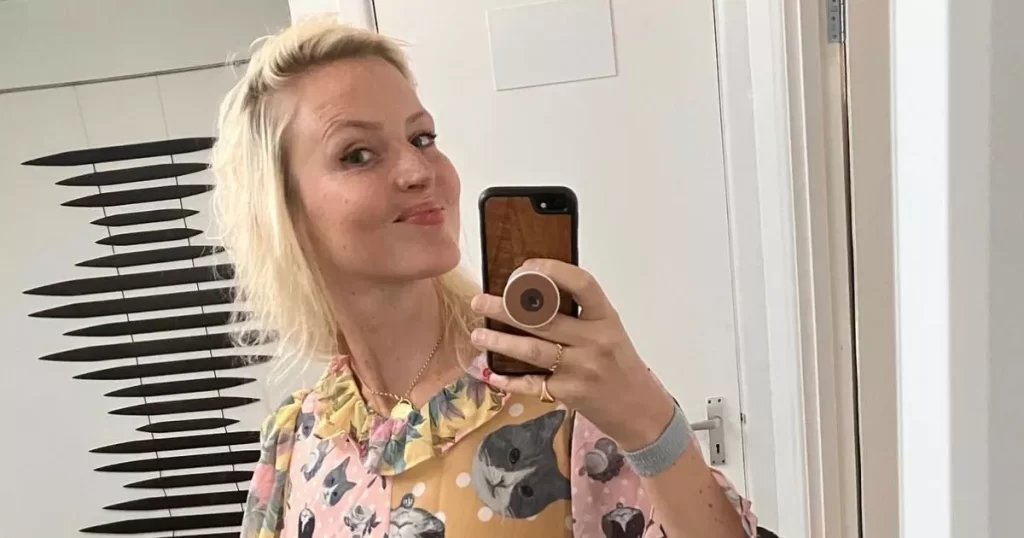Video LoadingVideo UnavailableClick to playTap to playThe video will auto-play soon8CancelPlay nowGet daily celeb exclusives and behind the scenes house tours direct to your inboxMore Newsletters SubscribePlease enter a valid emailSomething went wrong, please try again later.More NewslettersWe use your sign-up to provide content in ways you’ve consented to and improve our understanding of you. This may include adverts from us and third parties based on our knowledge of you. More infoThank you for subscribing!We have more newslettersShow me See OurPrivacy Notice See OurPrivacy Notice×Group 28 Get daily celeb exclusives and behind the scenes house tours direct to your inboxInvalid emailSomething went wrong, please try again later.Sign UpNo thanks, closeWe use your sign-up to provide content in ways you’ve consented to and improve our understanding of you. This may include adverts from us and third parties based on our knowledge of you. More info×Group 28Thank you for subscribing!We have more newslettersShow MeNo thanks, closeSee our
Privacy NoticeKris Hallenga, the philanthropist behind CoppaFeel!, sadly passed away from breast cancer aged just 38. Her life’s work was dedicated to encouraging millions of women to regularly check their breasts, with the ultimate goal of making her charity redundant by eliminating late diagnoses of breast cancer. Her tragic death on Monday, May 6 serves as a stark reminder of the importance of breast cancer awareness. In the UK, over 11,000 women succumb to this disease annually, equating to one person every 45 minutes, reports the Mirror. So, let’s honour her legacy by being vigilant about the early warning signs of breast cancer, knowing when to consult a doctor, and understanding how to minimise our risk.
CoppaFeel! founder Kristen Hallenga has sadly passed away
(Image: Getty)
Read More
Related Articles
‘She died with a heart full of love’ CoppaFeel! founder Kristen Hallenga dies age 38
Read More
Related Articles
Stacey Solomon shares her clever £7 suitcase packing hack that keeps swimwear compact and tidy
The NHS highlights that one of the primary symptoms of breast cancer in women is a lump or swelling in the breast, chest, or armpit. They urge us all to regularly self-examine so we can recognise what’s normal for our bodies. Quick, at-home checks can make it much easier to spot any changes in the size, appearance, or feel of your breasts. While other symptoms might be caused by less serious issues, it’s still crucial to get them checked out by your GP. These include: Nipple discharge (if you’re not pregnant or breastfeeding) which may have blood in it. A change in size or shape of one or both of your breasts. Pain in the breasts or armpit that does not go away. If you’re experiencing pain in these areas that comes and goes – this is not usually seen as a symptom of cancer. A change in the skin of your breast including dimpling (may look like an orange peel) or redness – which is harder to spot on black or brown skin A change in the shape or look of your nipple, for example, it turning inwards or a rash that may look like eczema.
Kris was diagnosed with breast cancer after finding a lump at the age of 22
(Image: Instagram)
Cancer Research UK has issued a warning that postmenopausal women who are overweight face a ‘higher risk’ of breast cancer compared to their slimmer counterparts, highlighting the importance of maintaining a healthy BMI between 18.5 and 24.9. The charity also points out that alcohol consumption can increase the risk, with a stark reminder: “There is no safe level of alcohol, so the more you can cut down the more you can reduce your risk.” While acknowledging that the contraceptive pill carries a ‘very small increased risk’ of breast cancer, Cancer Research UK reassures that this risk returns to normal a decade after stopping the pill. However, there are several risk factors beyond our control, such as ageing and genetic predispositions.
Kris was dedicated to encouraging millions of women to regularly check their breasts
(Image: Instagram)
This underscores the critical need for regular breast self-examinations and seeking medical advice if anything unusual is detected. For anyone affected by breast cancer seeking support, Macmillan Cancer Support offers valuable resources and guidance. Additionally, information on the NHS Breast Screening Programme is available for those looking for the most effective ways to conduct breast checks.Story SavedYou can find this story in My Bookmarks.Or by navigating to the user icon in the top right.Follow OK! MagazineFacebookTwitterCommentMore OnHealth












